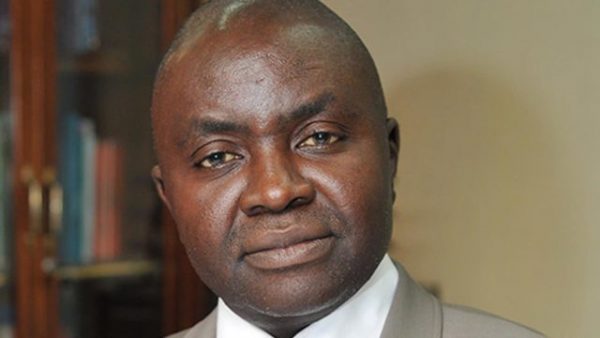
Muda Yusuf is the Founder, Centre for the Promotion of Private Enterprise (CPPE), he is also the immediate past Director General of the Lagos Chamber of Commerce and Industry (LCCI).
In this exclusive interview with BABAJIDE OKEOWO, he disclosed that he would have wished to have more technocrats than politicians on the Ministerial List transmitted by President Bola Ahmed Tinubu to the National Assembly.

He also reserved some commendation for Organised Labour, the Presidency, and the Police on their conduct during the recent protest called by organized labour to express displeasure about some “anti-people policies” of government. Excerpts
After The Unveiling Of The Second Batch Of President Bola Ahmed Tinubu’s Ministerial Nominees, Would You Say It Met Your Expectations As A Technocrat?

Well, you know, the list is a mixed bag. As a professional or as someone from a technocrat’s point of view, I had wished that we had more technocrats than core politicians. We have more politicians on the list and the way it is, the list seems to be heavily populated by politicians.
And the risk that this pose is that it may compromise the quality of policy conceptions, policy implementation, and all of that.
You know that a politician will always look at a lot of political considerations, you know, which sometimes may get in the way of good governance. So that’s the main issue I have with it.
Otherwise, it’s a democracy, and the president also has the responsibility to balance all manners of interests. This is what is playing out.
But we cannot determine the quality of performance until we see them start to work.
Even for those who are not politicians, we don’t know where they have been. We don’t know how well they’re going to do the work.
You can’t just screen people for 10 to 15 minutes this cannot show you fully who they are until you put them on the job.
And you cannot determine the character of the person through the CV. You cannot determine character by just interviewing somebody for 30 minutes or one hour. It will not show the character.
And all those things are critical in the delivery or in the performance of any person in any office. So, time will tell. Let’s wait and see, we have seen some politicians who did very well as Ministers in the past
For example, Babatunde Raji Fashola, he was a politician, he was a former governor and he was one of the best ministers in former President Muhammadu Buhari’s government.
I was even expecting that he would come back under this administration, but unfortunately, I didn’t see his name.
So, it’s still early day to say whether they will perform or not, let’s see how it goes.
But generally, I wish that we don’t have too many politicians in the cabinet.
How Would You Rate The Recent Protest Embarked Upon By Organized Labour Against What It Termed As Anti-People Policies?
I think it recorded some achievements. This is the first protest under this administration. And in fairness to labour, they have given the administration a long rope.
They have been quite accommodating. They were quite understanding almost to a fault. To the extent that some people are already looking at the leadership of labour as being weak and all of that.
So, the labour unions have shown an incredible level of understanding, firstly, taking into consideration that this was a new regime.
Secondly, understanding that some of these reforms that are being put in place are necessary reforms. But because they didn’t get a response from the government in good time, they had to finally go on this protest.
And I think looking at the responses by the National Assembly, and the fact that the president had to call the leaders of TUC and the NLC to his office to have direct interaction with them. I think it’s an evidence that something has been achieved. And what they said was that this was like a warning protest. And that they are going forward to monitor developments to know the next line of action.
They also showed maturity in their approach. They were not violent. They were very organized.
And I must also commend the police. The police were also very, very professional. Because it’s not often that we commend the police, but I think this time we must commend them.
They accompanied all the protesters. They followed them. They didn’t harass them, even when they forced their way into the National Assembly. You know they broke the fence down; I hope you noted that. But even in spite of that, the police did not put up any serious resistance.
They gave them that space to express themselves and all of that, and everything was peaceful. Because we didn’t hear of any tear gas being thrown at anybody and all of that.
So on both the part of the police and the protesters and those who organized the protest, we must appreciate their conduct during that protest.
One Of The Promises That The Government Made Was That The Port Harcourt Refinery Would Be Operational By December, Is This A Pipe Dream, Given The Fact That This Refinery Has Been Undergoing Turnaround Maintenance For A While Without Any Output. Would You Rate This As Just Another Talk On The Part Of The Government? That’s One. Secondly, If The Refinery Does Come On Board, What Impact Will It Have On The Nigerian Economy?
No, I don’t think it’s just mere talk. It’s a pronouncement coming directly from the President. So, I’m sure that they will have done a proper check before giving the President that information.
And in any case, you know we were told before that these refineries were going to be ready by either June or July.
It was expected that before the subsidy was finally moved, some of the refineries would have started to work. That was the projection, but it didn’t materialize, and nobody is giving us any comprehensive reports on why that did not happen.
Because at the time I remember they were talking about a couple of billions of dollars that has been sunk into the project in order to re-evaluate the refineries.
But now that the President is talking about the Port Harcourt Refinery, I have to note that they didn’t say all the refineries, so, I think he meant that is the one that will be ready first before others follow. So, I think the President deserves the benefit of the doubt about what he has said. So, let’s hope that it will be true.
On the Port Harcourt Refinery, I need to go and check the capacity, and you two can check the capacity of that refinery. You know, all of them together have a capacity of about 445,000 barrels in refining capacity. All four refineries.
But if you look at Port Harcourt alone, within the context of the capacity of our consumption, it still will not make too much of a difference.
Whatever it is, whatever they produce may not significantly have any meaning. Because even if all of them are working, I’m not sure they will have to produce enough to meet the totality of our needs, you know.
So, but it is still progress, you know, it is an improvement on the current situation if it begins to work that means our need for imports will reduce to the extent of that domestic production. And I’m also hoping that by the end of the year, the Dangote Refinery and Petrochemical Complex finally will come on board.
Although there are a lot of stories as to whether it will happen, or that it will not happen. But I’m hoping that by the end of the year, it will come on board. So, it will make some difference, but it will not go far enough to significantly alter the life expectancy of supply.
Concerns Have Been Raised About Our Ability To Meet Demands If All These Refineries; The Modular Refineries, State-owned Refineries, Dangote Refinery All Become Operational, How Do We Meet Demands?
Well, we still have reserves. We still have a crude oil reserve that is a lot, you know. What is needed is more investment in exploration.
If we have more investment in exploration, if there is security in the Niger Delta and all the other producing companies are able to produce optimally without disruption, we will get the crude. We will get the crude.
And if the environment is okay, I mean, let’s have the PIA and all of that working well, we will be able to attract more investors. You know, many investors have fled.
And when you are producing for local consumption, you don’t have any quota barrier. So you don’t have to worry about it, so you can produce as much as you want. No quota on whether the amount of special non-produced that is refined that you can export. No quota on that. So that should not be a problem. If we sort out the security problem in the whole producing area, if our policy environment is right, as envisaged in the Petroleum Industry Act, we have more investment and we have more output. That is not a problem at all.
With Some Of The Reforms Carried Out By This Administration, What Positivity Do You See In These Trying Times For Nigerians?
Amid the trying times, there are a few bright spots, I hope you know that. One, it’s a lot of money now to export. A dollar that gives you 450 Naira before will now give you N800 Naira. And there’s no more barrier like that on how you can sell your foreign exchange.
Now you can bring it in, you can sell it to the grass. You can sell it at the I&E Window. So, the incentive is there. Let’s focus.
So far, the steps that have been taken by this present administration are very positive. They are in line with our expectations of reforms in the economy. Before now we had clamored for reforms in our foreign exchange market, as well as oil and gas sectors starting with the fuel subsidy issue and it is gratifying that at least those two major reforms have been undertaken.
Although they are still work-in-progress, they are not at the destination yet but I believe that it will impact positively on the economy. We are likely to see more investment in the economy on the back of the foreign exchange reforms.
We are hoping to see more investment in the Oil and Gas sector on the back of fuel subsidy removal. The removal also has an impact on revenue. If we have an improvement in revenue. we are likely to see an improvement in our macroeconomic environment. It will also help to preserve our foreign exchange.
 MMS PLUS NG – Maritime, Aviation, Business, Oil and Gas News Online Newspaper with coverage in Maritime, Oil and Gas, Aviation, Power and Energy as well as Financial News
MMS PLUS NG – Maritime, Aviation, Business, Oil and Gas News Online Newspaper with coverage in Maritime, Oil and Gas, Aviation, Power and Energy as well as Financial News









